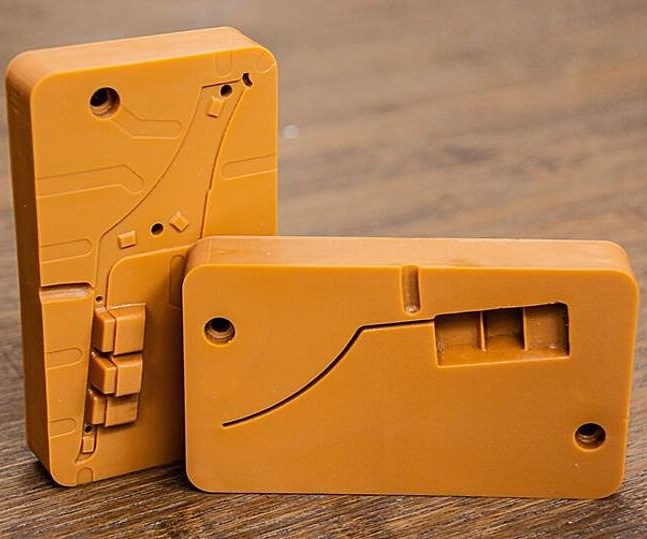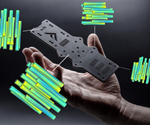Henkel, Fortify partner to enable high-performance applications in 3D printing
The companies are leveraging Fortify’s composite 3D printing technology with Henkel’s resins for injection mold tools and other applications.

A 3D-printed tool by Fortify that is used to mold an automotive part. Source | Henkel
In a new partnership, Henkel (Düsseldorf, Germany) and (Boston, Mass., U.S.) are leveraging Fortify’s Digital Composite Manufacturing (DCM) 3D printing technology with high-temperature, high-modulus resins developed by Henkel.
In this combined solution, Fortify’s DCM technology mixes reinforcing fibers with Henkel’s resins, and then utilizes magnetics to align the fibers for optimum strength in printed parts. Read more about Fortify’s magnetic 3D printing for tailored composites.
Leveraging Henkel’s material, Fortify will begin field beta testing its 3D printers in the spring of 2020. Beyond injection molding, Henkel and Fortify are looking at several end-use part applications where their combined solutions offer a significant advantage.
According to Henkel, injection molded parts that are reinforced with fibers typically show 20-100% increases in strength, stiffness and heat deflection temperature (HDT), and Fortify brings these same performance advantages to the 3D printing space. 3D-printed injection mold tools are one application where Fortify is focusing in its partnership with Henkel. Replacing traditional metal tooling with inserts that are 3D-printed enables molders to save time and tooling costs.
“Our strong, data-driven approach to material innovation continues to unlock the power of additive manufacturing. Fortify is focused on delivering value in industries where part performance is mission critical. Together, we’re making it happen,” says Ken Kisner, innovation lead for 3D printing at Henkel and founder of Molecule Corp., which was acquired by Henkel earlier this year.
“When prototyping or producing parts in small runs, tooling cost and time are major barriers,” says Karlo Delos Reyes, VP of applications and co-founder at Fortify. “With our 3D-printed molds that utilize Henkel’s resin, we have proved the viability of these tools for low production runs. As we help injection molders reduce the expense and time involved with producing molds, they can quickly react to new opportunities.”
Related Content
-
Reinforce 3D forms alliance with 3D printing company Spring Srl
Integration of CFIP technology with additive manufacturing will facilitate optimized composites manufacturing and build up CFIP’s scale.
-
KraussMaffei CFP technology enhances glass fiber processing
Patented screw geometry and the ability to separately dose glass fibers and PP into the injection molding machine reduces material cost by 30%, enables consistent quality and flexibility.
-
Injection molding expertise achieves composites mobility innovation
JEC World 2025: A partner in three JEC Award products, Engel demonstrates how its injection molding equipment can set new benchmarks in applications like bike handlebars and interior vehicle components.
.jpg;width=70;height=70;mode=crop)





